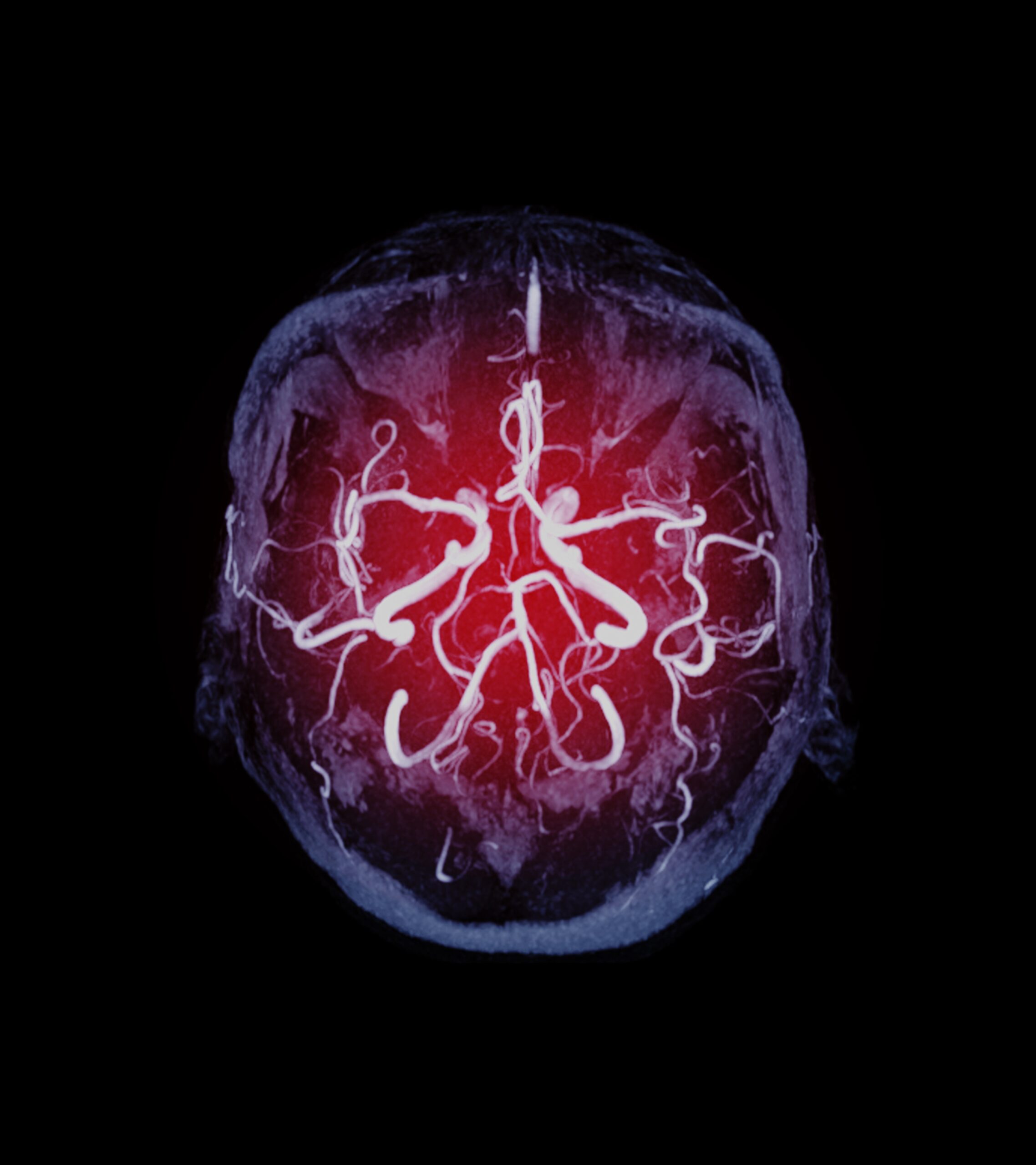
New research suggests that intensive blood pressure management is linked with a smaller increase of white matter lesion volume (a measure of cerebral small vessel ischemic disease).
The substudy of the SPRINT MIND trial included 449 patients with hypertension aged 50 years or older with no history of diabetes or stroke. A subset of participants underwent brain magnetic resonance imaging (MRI; n=670) at baseline and at four years follow-up (n=449). Patients were randomized to a systolic blood pressure goal of <120 mm Hg (intensive treatment, n=355) or <140 mm Hg (standard treatment, n=315). The primary study outcome was a change in total white matter lesion volume from baseline, with a secondary outcome of total brain volume. Median follow-up was 3.40 years.
According to the study results, patients in the intensive blood pressure treatment group saw a smaller increase in mean white matter lesion volume (from 4.57 to 5.49 cm3; difference, 0.92 cm3; 95% CI, 0.69 to 1.14) compared with an increase from 4.40 to 5.85 cm3 (difference, 1.45 cm3; 95% CI, 1.21 to 1.70) receiving standard blood pressure treatment. They also reported a decrease in mean total brain volume in the intensive treatment cohort versus the standard care group (between group difference in change, -3.7 cm3; 95% CI, -6.3 to -1.1).
“These initial results support a growing body of evidence suggesting that controlling blood pressure may not only reduce the risk of stroke and heart disease but also of age-related cognitive loss,” said Walter J. Koroshetz, MD, director of the NIH’s National Institute of Neurological Disorders and Stroke (NINDS), in a press release. “I strongly urge people to know your blood pressure and discuss with your doctors how to optimize control. It may be a key to your future brain health.”
The study researchers said that the next steps involve looking at the effects of intensive blood pressure control among young adults.
“The great news from this research is that high blood pressure is a treatable condition, and if you treat high blood pressure aggressively, you could have a positive benefit on cognition and brain structure,” study co-author R. Nick Bryan, MD, PhD, chair and professor of the Department of Diagnostic Medicine at Dell Medical School at The University of Texas at Austin said in a press release. “Though the benefit may be small, it’s one of the few impactful cognition-related interventions we have.”
finally the results from SPRINT MIND regarding impact of intensive BP control on accrual of white matter hyperintensities: https://t.co/zChOFQBefT
I've got questions! What do people think, and what are your questions?…2/n
— Dr. Beth Shaaban (@PopNeurosci) August 13, 2019
https://twitter.com/NHLBI_Translate/status/1161606687322542082
https://twitter.com/NHLBI_HEARTDir/status/1161611290428600320







 © 2025 Mashup Media, LLC, a Formedics Property. All Rights Reserved.
© 2025 Mashup Media, LLC, a Formedics Property. All Rights Reserved.